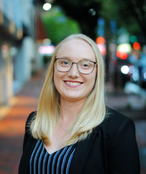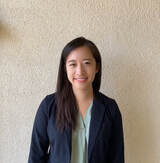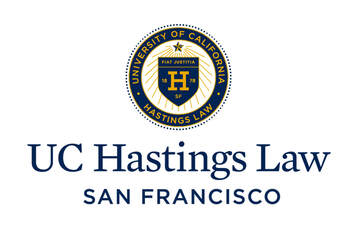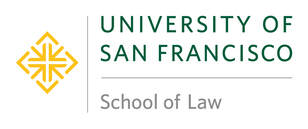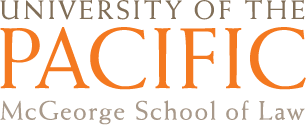Agenda
|
9:00 AM
Welcoming Remarks: Symposium Co-Chairs, Austin Turner and Melissa Quintero Introductory Speaker: Karrigan Bork Professor, UC Davis School of Law Introductory Speaker Materials Keynote Speaker: Laurel Firestone Board Member, State Water Resources Control Board 10:00 AM California Water Law Writing Prize Award Presentation Presenter: Professor Jennifer Harder Winner: Alex Van Roekel, UCLA School of Law ’21 Making Every Drop Count: The Keys to Successful SGMA Implementation BREAK 10:30 AM-11:45 AM Panel 1: Climate Change and FERC Hydropower Relicensing on the Tuolumne River Organized by Golden Gate University School of Law Panel 2: Freshwater Flow Regulation & Endangered Species Management in the Bay-Delta Organized by University of San Francisco BREAK 12:00 PM-1:15 PM Panel 3: Achieving Water Justice in a Changing Climate Organized by Berkeley Law Panel 4: Innovations in Water Storage as a Response to Climate Change Organized by University of the Pacific, McGeorge School of Law LUNCH BREAK 2:15 PM-3:30 PM Panel 5: The Ideal Dam Organized by UC Hastings College of the Law |
Panel Descriptions and MCLE Resources
Keynote Speaker
Laurel Firestone
The morning Keynote will be delivered by Laurel Firestone, member of the State Water Resources Control Board.
Keynote Speaker's Materials
The morning Keynote will be delivered by Laurel Firestone, member of the State Water Resources Control Board.
Keynote Speaker's Materials
Panel 1 - 10:30 AM-11:45 AM
Climate Change and FERC Hydropower Relicensing on the Tuolumne River.
Organized by Golden Gate University School of Law
This panel will examine the challenge of addressing climate change impacts in the context of FERC Re-licensing of the Don Pedro and La Grange Dams on the Tuolumne River. Panelists will address how climate change is impacting the river, how this is currently being addressed by FERC, and what more needs to be done. Issues to be discussed include water supply, temperature, fish passage, the role of NEPA and CEQA, and the role of Section 401 Certification of FERC-licensed dams under the federal Clean Water Act.
This panel will examine the challenge of addressing climate change impacts in the context of FERC Re-licensing of the Don Pedro and La Grange Dams on the Tuolumne River. Panelists will address how climate change is impacting the river, how this is currently being addressed by FERC, and what more needs to be done. Issues to be discussed include water supply, temperature, fish passage, the role of NEPA and CEQA, and the role of Section 401 Certification of FERC-licensed dams under the federal Clean Water Act.
PanelistsMichael Frantz, Turlock Irrigation District
Kristin Peer, CalEPA Chris Shutes, California Sportfishing Protection Alliance Steve Edmondson, National Marine Fisheries Service |
Panel 2 - 10:30 AM-11:45 AM
Freshwater Flow Regulation & Endangered Species Management in the Bay-Delta
Freshwater Flow Regulation & Endangered Species Management in the Bay-Delta
Organized by University of San Francisco School of Law
This panel will discuss the objectives and updates to the Water Quality Control Plan for the San Francisco/Sacramento-San Joaquin Delta Estuary (Bay-Delta Plan), as originally set forth by the California State Water Resources Control Board and as amended in 2018 and 2019. The panel will focus on freshwater flow regulations as pertain to various upstream uses and how the loss of water and habitat--due to Climate Change and water distribution practices--impact threatened and endangered species within the Bay-Delta ecosystem. The panel will conclude with a discussion regarding how the Northern California Water Association is working with public agencies and private parties to increase the availability of freshwater resources for use as drinking water, for agricultural purposes, and for habitat restoration efforts.
This panel will discuss the objectives and updates to the Water Quality Control Plan for the San Francisco/Sacramento-San Joaquin Delta Estuary (Bay-Delta Plan), as originally set forth by the California State Water Resources Control Board and as amended in 2018 and 2019. The panel will focus on freshwater flow regulations as pertain to various upstream uses and how the loss of water and habitat--due to Climate Change and water distribution practices--impact threatened and endangered species within the Bay-Delta ecosystem. The panel will conclude with a discussion regarding how the Northern California Water Association is working with public agencies and private parties to increase the availability of freshwater resources for use as drinking water, for agricultural purposes, and for habitat restoration efforts.
|
Panelists
Kate Poole, Natural Resources Defense Council Erik Ekdahl, State Water Resources Control Board David Guy, Northern California Water Association Dave Owen, UC Hastings College of the Law (Moderator) |
Panel 3 - 12:00 PM-1:15 PM
Achieving Water Justice in a Changing Climate
Achieving Water Justice in a Changing Climate
Organized by Berkeley Law
Today, many California communities that have experienced chronic underinvestment are struggling to meet their basic water needs. This panel examines current efforts to address water injustice in low-income, often predominantly Spanish-speaking, communities of color in the Central Valley and other parts of California, through the lens of climate change. It explores the legal, policy, and technical tools that communities, regulators, and other actors are using to confront drinking water quality, reliability, and affordability challenges, and considers what more will be needed to achieve water justice in a changing climate. The panel will center the importance of actively involving communities in water management decisions that affect them and addressing language and other barriers to meaningful participation in order to effectively combat current drinking water insecurity, increase community water and climate resilience, and enable more equitable and effective climate adaptation.
Today, many California communities that have experienced chronic underinvestment are struggling to meet their basic water needs. This panel examines current efforts to address water injustice in low-income, often predominantly Spanish-speaking, communities of color in the Central Valley and other parts of California, through the lens of climate change. It explores the legal, policy, and technical tools that communities, regulators, and other actors are using to confront drinking water quality, reliability, and affordability challenges, and considers what more will be needed to achieve water justice in a changing climate. The panel will center the importance of actively involving communities in water management decisions that affect them and addressing language and other barriers to meaningful participation in order to effectively combat current drinking water insecurity, increase community water and climate resilience, and enable more equitable and effective climate adaptation.
|
Panelists
Amanda Monaco, Leadership Counsel for Justice and Accountability Max Gomberg, State Water Resources Control Board Vicky Espinoza, UC Merced Kristin Dobbin, UC Davis Nell Green Nylen, Berkeley Law (Moderator) |
Panel 4 - 12:00 PM-1:15 PM
Innovations in Water Storage As A Response To Climate Change
Innovations in Water Storage As A Response To Climate Change
Organized by University of the Pacific, McGeorge School of Law
Climate change is anticipated to decrease the effectiveness of existing surface water reservoirs by changing the location, timing and volume of precipitation. This panel will focus on ways to adapt California’s water storage system to these new realities. Panelists will discuss two ways of rethinking water storage infrastructure–groundwater recharge and watershed restoration–and the legal, scientific, and policy principles that govern these efforts. The panelists will also touch upon various considerations that accompany water storage such as regulation, data, funding, and legal and political challenges.
Climate change is anticipated to decrease the effectiveness of existing surface water reservoirs by changing the location, timing and volume of precipitation. This panel will focus on ways to adapt California’s water storage system to these new realities. Panelists will discuss two ways of rethinking water storage infrastructure–groundwater recharge and watershed restoration–and the legal, scientific, and policy principles that govern these efforts. The panelists will also touch upon various considerations that accompany water storage such as regulation, data, funding, and legal and political challenges.
|
Panelists
Tina Cannon Leahy, State Water Resources Control Board Phil Saksa, Blue Forest Rebecca Smith, Downey Brand Alvar Escriva-Bou, Public Policy Institute of California |
Panel 5 - 2:15 PM-3:30 PM
The Ideal Dam
The Ideal Dam
Organized by UC Hastings College of the Law
A lively, collaborative discussion about whether there is an ideal dam. Questions for the panelists will focus on best practices for statewide dam reform to mitigate and adapt to climate change. This includes the pros and cons of using dams or other alternatives to address a variety of climate-related issues. We will take a critical look at the types of dams that are most beneficial and the process of choosing which dams to upgrade and which to remove. Elements to consider in choosing valuable dams include reducing anticipated floods, hydropower potential, access to clean water, tribal rights, and ecological impacts both upstream and downstream.
A lively, collaborative discussion about whether there is an ideal dam. Questions for the panelists will focus on best practices for statewide dam reform to mitigate and adapt to climate change. This includes the pros and cons of using dams or other alternatives to address a variety of climate-related issues. We will take a critical look at the types of dams that are most beneficial and the process of choosing which dams to upgrade and which to remove. Elements to consider in choosing valuable dams include reducing anticipated floods, hydropower potential, access to clean water, tribal rights, and ecological impacts both upstream and downstream.
|
Panelists
Tim Ramirez, San Francisco Public Utilities Commission / Central Valley Flood Protection Board Lisa Belenky, Center for Biological Diversity Anecita Agustinez, California Department of Water Resources |
SYMPOSIUM CHAIRS
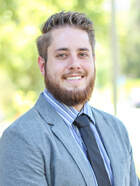
Austin Turner
Austin Turner is a 3rd-year law student at UC Davis School of Law. Austin was previously the President of the Water Association of Law and Policy at UC Davis. He interned at the California State Water Resources Control Board, Office of Enforcement, from May to November 2020, where his passion for Water Law grew even further. Additionally, during Austin's last semester at UC Davis, he will be a T.A. for the UC Davis undergraduate Water Law class.
Austin Turner is a 3rd-year law student at UC Davis School of Law. Austin was previously the President of the Water Association of Law and Policy at UC Davis. He interned at the California State Water Resources Control Board, Office of Enforcement, from May to November 2020, where his passion for Water Law grew even further. Additionally, during Austin's last semester at UC Davis, he will be a T.A. for the UC Davis undergraduate Water Law class.
|
Melissa Quintero
Melissa is a third-year law student at UC Davis School of Law. She previously interned at the California Governor’s Office of Planning and Research assisting in land use planning approaches to achieve the State’s carbon emissions goals. Melissa also interned at the Sierra Club, where she assisted on Clean Water Act issues. Additionally, Melissa was a law clerk at Somach, Simmons, and Dunn, working on different facets of private water law litigation. Melissa's interest in water law first emerged during her childhood in California's Central Valley and has continued to grow since then. |
Panel Chairs
UC Berkeley School of Law
|
Lilith Gamer
Lilith Gamer is a second-year law student at UC Berkeley School of Law. She co-leads La Raza Workers' and Tenants' Rights Clinic, supports the East Bay Community Law Center's Consumer Justice Clinic, and participates in Berkeley's Ecology Law Quarterly. Although her passion is dismantling language and economic barriers to accessing legal services, the inextricable overlap between social and environmental justice drives her interest in climate change and water law. She received her BA from the University of Colorado, Boulder in Political Science and Spanish. Phalen Kohlruss-Reuman
Phalen Kohlruss-Reuman is a second-year student at UC Berkeley School of Law. She is the Environmental Justice Editor of Ecology Law Quarterly, President of the Environmental Law Society, Co-leader of Environmental Conservation Outreach, and a member of Students for Economic and Environmental Justice. Last summer, she worked as a law clerk for Defenders of Wildlife. Growing up in Colorado, Phalen developed a strong passion for the outdoors and received her B.S. in Fish, Wildlife, and Conservation Biology from Colorado State University. She is pursuing an Environmental Law Certificate and is particularly interested in water rights allocation throughout the West in the face of climate change. Angela Luh
Angela Luh is a third-year law student at the University of California, Berkeley School of Law, where she is a Graduate Student Researcher at the California-China Climate Institute and an Associate Editor on the Ecology Law Quarterly. Prior to law school, she helped lead corporate sustainability initiatives for a San Francisco-based tech company and served as a Program Associate at the Energy Foundation, working on energy efficiency and climate change issues. She received her BA from the University of California, San Diego. |
|
|
University of the Pacific, McGeorge School of Law
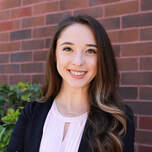
Nataliya Shtevnina
Nataliya is a 3L at McGeorge Law School. She received her BA in Government from Sacramento State and has lived in the Sacramento area most of her life. During her time at McGeorge, Nataliya has been a part of the moot court program, the negotiations team, and Salzburg study abroad program. This spring she’ll be doing a judicial externship at the US Eastern District court house in Sacramento.
Nataliya is a 3L at McGeorge Law School. She received her BA in Government from Sacramento State and has lived in the Sacramento area most of her life. During her time at McGeorge, Nataliya has been a part of the moot court program, the negotiations team, and Salzburg study abroad program. This spring she’ll be doing a judicial externship at the US Eastern District court house in Sacramento.
University of San Francisco
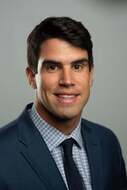
Max Martinez
Max Martinez is a third year law student at the University of San Francisco. Max previously completed his B.S. at the University of Southern California, majoring in Environmental Studies. Growing up in the Bay Area, Max developed a passion for environmental issues at a young age and has always been an avid outdoorsman. Aspiring to follow a career path in the fields of land-use, environmental, and real estate law, Max intends to integrate his interests in natural resources and conservation into a career that will promote sustainable development in California.
Max Martinez is a third year law student at the University of San Francisco. Max previously completed his B.S. at the University of Southern California, majoring in Environmental Studies. Growing up in the Bay Area, Max developed a passion for environmental issues at a young age and has always been an avid outdoorsman. Aspiring to follow a career path in the fields of land-use, environmental, and real estate law, Max intends to integrate his interests in natural resources and conservation into a career that will promote sustainable development in California.

Emma Cervantes
Emma Cervantes is a second-year law student at the University of San Francisco. Prior to law school, Emma received her B.A. from the University of California, Santa Cruz, with a double major in Politics and Environmental Studies. She also served two years as a FoodCorps AmeriCorps service member, providing K-5 outdoor garden and nutrition education in Watsonville, CA. Emma is passionate about protecting and conserving our unique California ecosystems and supporting food and environmental justice efforts in her community. She hopes to dedicate her legal career to advocacy on behalf of natural resources, the environment, and public health.
Emma Cervantes is a second-year law student at the University of San Francisco. Prior to law school, Emma received her B.A. from the University of California, Santa Cruz, with a double major in Politics and Environmental Studies. She also served two years as a FoodCorps AmeriCorps service member, providing K-5 outdoor garden and nutrition education in Watsonville, CA. Emma is passionate about protecting and conserving our unique California ecosystems and supporting food and environmental justice efforts in her community. She hopes to dedicate her legal career to advocacy on behalf of natural resources, the environment, and public health.
Golden Gate University School of Law
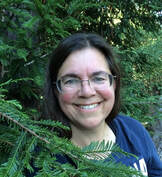
Susann M. Bradford, Ed.D.
Susann is a third-year Honors student with Environmental Law and Public Interest Law Distinctions at Golden Gate University School of Law, where she also serves as Editor in Chief of the Golden Gate University Environmental Law Journal. She recently interned at the City Attorney’s Office of San Francisco and completed a Summer Clerkship at Earthjustice, before returning to Golden Gate University Environmental Law and Justice Clinic to focus on water quality litigation as a student law clerk. Susann competed in the 2020 National Environmental Law Moot Court Competition and has also served in leadership roles for Golden Gate University’s Public Interest Law Foundation and Environmental Law Society. Prior to commencing her law career, Susann taught mathematics and liberal arts at the University of Montana, where she earned advanced degrees in Environmental Studies and Education after completing undergraduate studies at St. John’s College, Santa Fe.
Susann is a third-year Honors student with Environmental Law and Public Interest Law Distinctions at Golden Gate University School of Law, where she also serves as Editor in Chief of the Golden Gate University Environmental Law Journal. She recently interned at the City Attorney’s Office of San Francisco and completed a Summer Clerkship at Earthjustice, before returning to Golden Gate University Environmental Law and Justice Clinic to focus on water quality litigation as a student law clerk. Susann competed in the 2020 National Environmental Law Moot Court Competition and has also served in leadership roles for Golden Gate University’s Public Interest Law Foundation and Environmental Law Society. Prior to commencing her law career, Susann taught mathematics and liberal arts at the University of Montana, where she earned advanced degrees in Environmental Studies and Education after completing undergraduate studies at St. John’s College, Santa Fe.
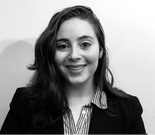
Yasmeen Gharib
Yasmeen is a second-year evening student at Golden Gate University School of Law. She graduated from San Francisco State University with a Bachelor’s degree in Political Science. Yasmeen is also a certified paralegal with experience working in litigation, tax law, and estate planning. She grew up in Cairo, Egypt and moved to the United States to pursue a law degree. She enjoys cooking, reading, and learning new languages.
Yasmeen is a second-year evening student at Golden Gate University School of Law. She graduated from San Francisco State University with a Bachelor’s degree in Political Science. Yasmeen is also a certified paralegal with experience working in litigation, tax law, and estate planning. She grew up in Cairo, Egypt and moved to the United States to pursue a law degree. She enjoys cooking, reading, and learning new languages.
UC Hastings College of Law
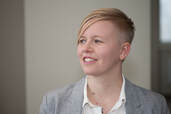
Katie Lindsay
Katie is a third-year law student at UC Hastings. She is a senior development editor on the Hastings Environmental Law Journal. This summer she worked at the San Francisco Bay Conservation and Development Commission and is currently working with the Center of Biological Diversity Urban Wildlands Program where she hopes to tie her passion for water and land use law together to help protect the environment. Prior to law school, Katie earned a bachelor's degree in Rhetoric at UC Berkeley and worked in animal welfare.
Katie is a third-year law student at UC Hastings. She is a senior development editor on the Hastings Environmental Law Journal. This summer she worked at the San Francisco Bay Conservation and Development Commission and is currently working with the Center of Biological Diversity Urban Wildlands Program where she hopes to tie her passion for water and land use law together to help protect the environment. Prior to law school, Katie earned a bachelor's degree in Rhetoric at UC Berkeley and worked in animal welfare.
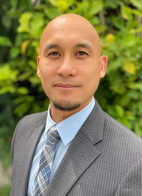
Andrew B. Rubang, MPA
Andrew B. Rubang is currently a Clerk for Judge Garret Wong at the Superior Court of California, County of San Francisco, a Staff-Editor for the Hastings Environmental Law Journal, and on the executive boards for both Hastings Public Interest Law Foundation and the Pilipino American Law Society. Andrew earned his Master in Public Administration at the University of San Francisco and received his Bachelor of Science in Biology from the University of California, Irvine. Prior to UC Hastings, Andrew worked at East Bay Municipal Utility District (EBMUD) as a Senior Water Treatment Operator, serving 1.4 million customers in the Contra Costa and Alameda Counties. At EBMUD he was the Shop Steward (treatment plant representative for the union, Stationary Engineers Local 39) and the Chairman for the plant safety tailgates.
Andrew B. Rubang is currently a Clerk for Judge Garret Wong at the Superior Court of California, County of San Francisco, a Staff-Editor for the Hastings Environmental Law Journal, and on the executive boards for both Hastings Public Interest Law Foundation and the Pilipino American Law Society. Andrew earned his Master in Public Administration at the University of San Francisco and received his Bachelor of Science in Biology from the University of California, Irvine. Prior to UC Hastings, Andrew worked at East Bay Municipal Utility District (EBMUD) as a Senior Water Treatment Operator, serving 1.4 million customers in the Contra Costa and Alameda Counties. At EBMUD he was the Shop Steward (treatment plant representative for the union, Stationary Engineers Local 39) and the Chairman for the plant safety tailgates.
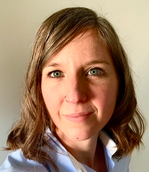
Tara Pierce
Tara Pierce is new to law, but environmental advocacy is an old hat. Growing up on the California coast, Tara has been working to save the ocean since she was in Kindergarten. Surfing with sea lions and living on a sailboat only deepened her love for the ocean and her affection for marine life. Her career as an Environmental Art Activist took a shift in graduate school, where she discovered her interest in policy. Collaborating with artists, scientists, and community members felt like a complex puzzle of fitting in all stakeholder's concerns to unite them and benefit the ecosystem. This prompted her to apply to law school and change the system from within. Tara's ultimate career goal is to address climate change in a timely, adequate, and equitable manner.
Tara Pierce is new to law, but environmental advocacy is an old hat. Growing up on the California coast, Tara has been working to save the ocean since she was in Kindergarten. Surfing with sea lions and living on a sailboat only deepened her love for the ocean and her affection for marine life. Her career as an Environmental Art Activist took a shift in graduate school, where she discovered her interest in policy. Collaborating with artists, scientists, and community members felt like a complex puzzle of fitting in all stakeholder's concerns to unite them and benefit the ecosystem. This prompted her to apply to law school and change the system from within. Tara's ultimate career goal is to address climate change in a timely, adequate, and equitable manner.

Donato Vincenzo Catrina
Donato Vincenzo Catrina is a first-year law student at UC Hastings. He was introduced to environmental regulation at the Alameda County District Attorney’s Office and witnessed the power that the law provides to ensure sustainable use of earth’s resources. At Baylor University, he worked with the Tehuacana Water District in the preliminary steps to creating a watershed management plan for the district. He hopes to continue his work as an environmental advocate, particularly in the field of water rights and environmental enforcement, in the face of growing concerns about water quality and quantity. He received his BA from Baylor University.
Donato Vincenzo Catrina is a first-year law student at UC Hastings. He was introduced to environmental regulation at the Alameda County District Attorney’s Office and witnessed the power that the law provides to ensure sustainable use of earth’s resources. At Baylor University, he worked with the Tehuacana Water District in the preliminary steps to creating a watershed management plan for the district. He hopes to continue his work as an environmental advocate, particularly in the field of water rights and environmental enforcement, in the face of growing concerns about water quality and quantity. He received his BA from Baylor University.



